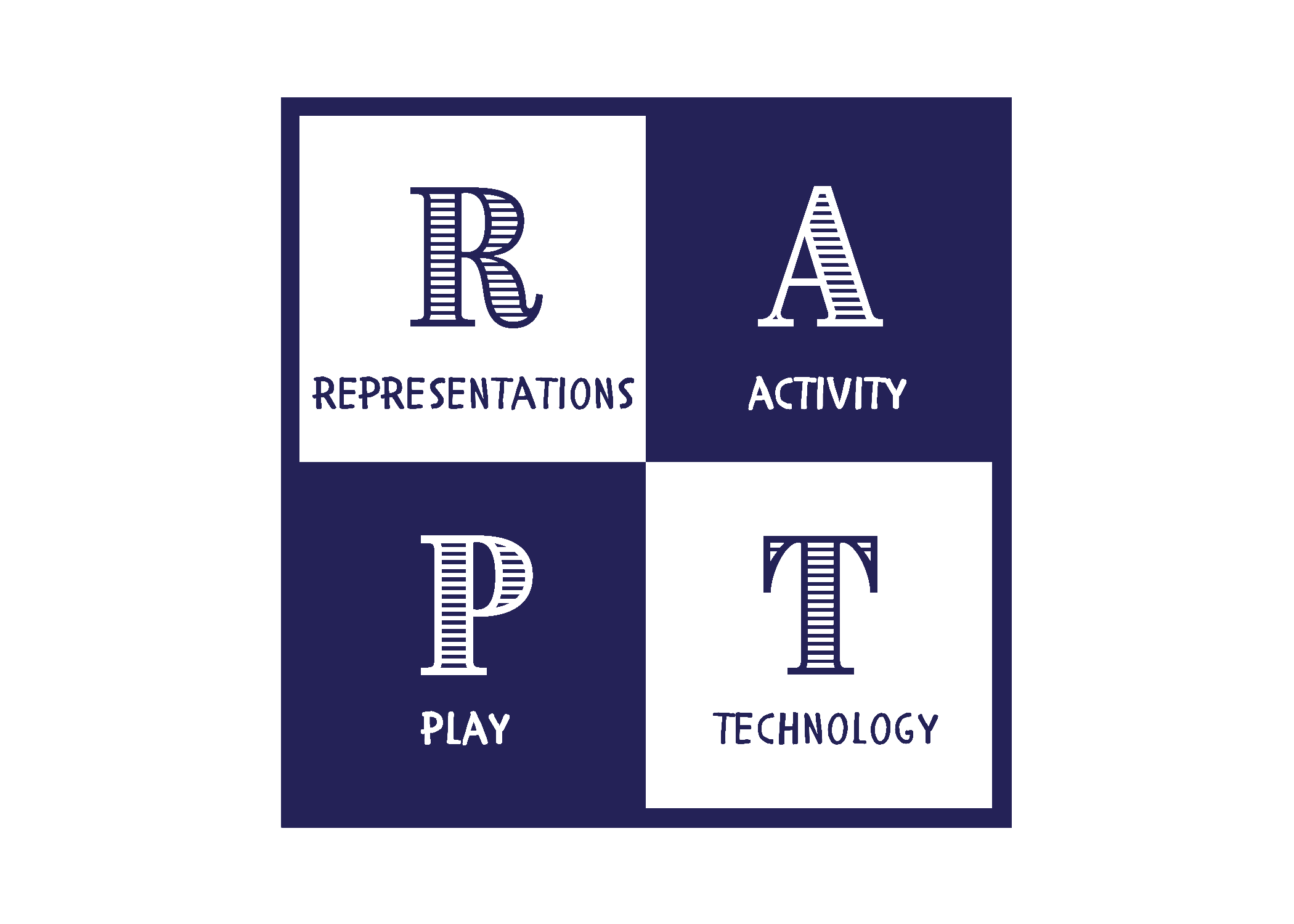
RAPT Lab: Representations, Activity, Play, and Technology Lab
Projects: Net.Create: Examples
Example Networks from the Visualizing Funds of Identity Project, 2022
In this project, we worked with 5th and 6th grade students to explore a number of networks as a way of exploring their own collective identity, and learning some basic data literacy concepts. See a few of the sample networks from this project below along with brief explanations of how we incorporated each into the classroom activities. You can find out more in the following papers:
- Stiso, C., Zhou, M., Steinberg, S., Danish, J. A. & Craig, K. (2023). Visualizing Funds of Identity: Using Network Software to Model Collective Identity in a Classroom. In Proceedings of the International Conference of the Learning Sciences (ICLS) 2023.
- Zhou, M., Steinberg, S., Stiso, C., Danish, J. A., & Craig, K. (2023). Using network visualizations to engage elementary students in locally relevant data literacy. Information and Learning Sciences, ahead-of-print(ahead-of-print).
| Network | Summary | Image |
|---|---|---|
| Yarn Identity | In a classroom activity, students made a physical network out of yarn by answering questions about their identities, such as “what is a person/place/thing that is important to you?” and then tossing the ball of yarn to another student that shared that aspect of their identity. Researchers digitalized the yarn network in Net.Create (pictured here) to allow further exploration and expansion. This activity facilitated conversations about the members of the classroom, and about the affordances of physical and digital representations of a network. | 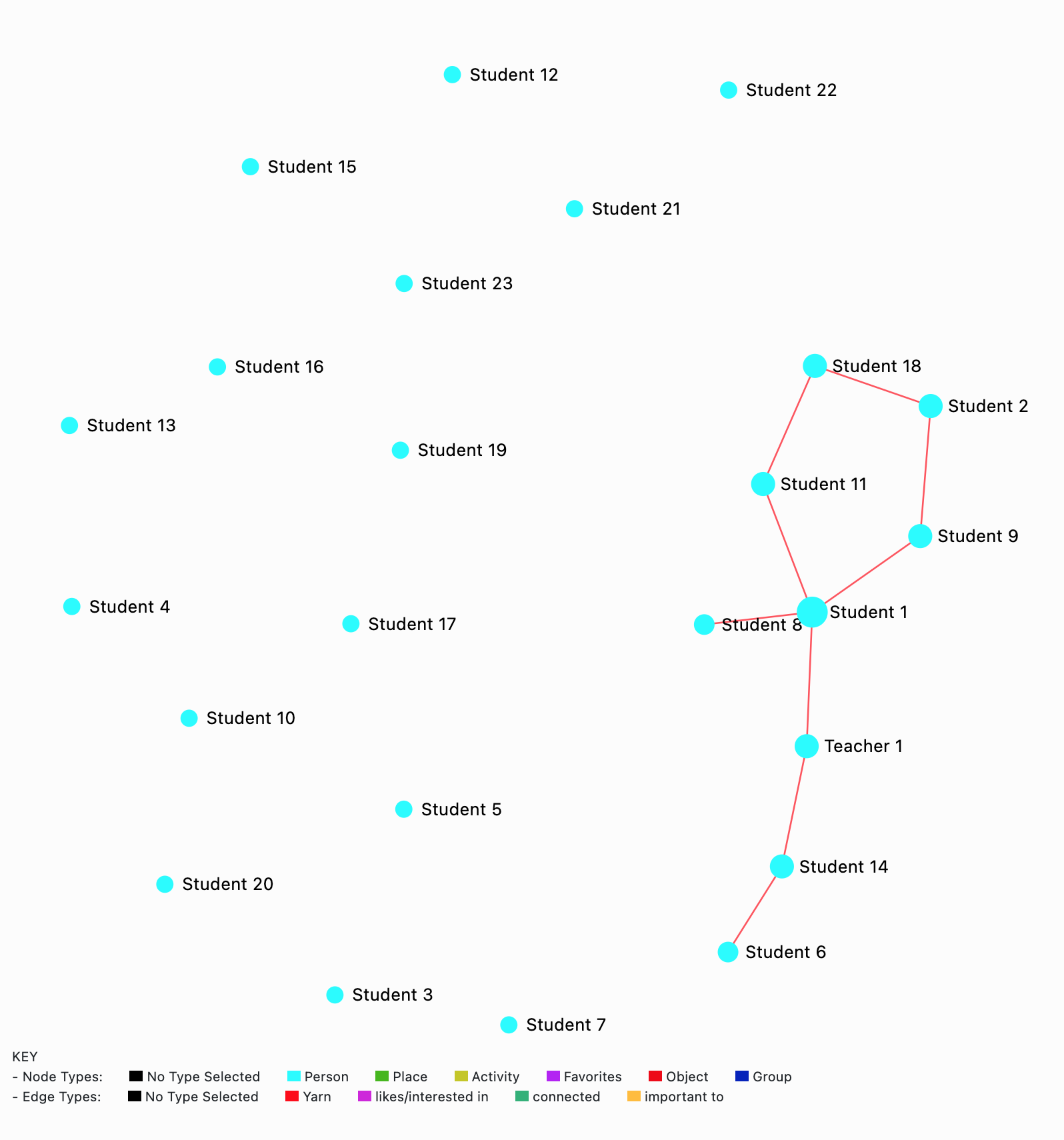 Image ImageNetwork |
| Full Identity Network | Building on the digital Yarn Network, students added nodes that captured places, activities, objects, groups, and people that were important to them. They made connections to each other and to the new nodes. They then had opportunities to revise this over the remainder of the unit, discussing what other information they felt might be worth including, and how. The attached image is the final version. | 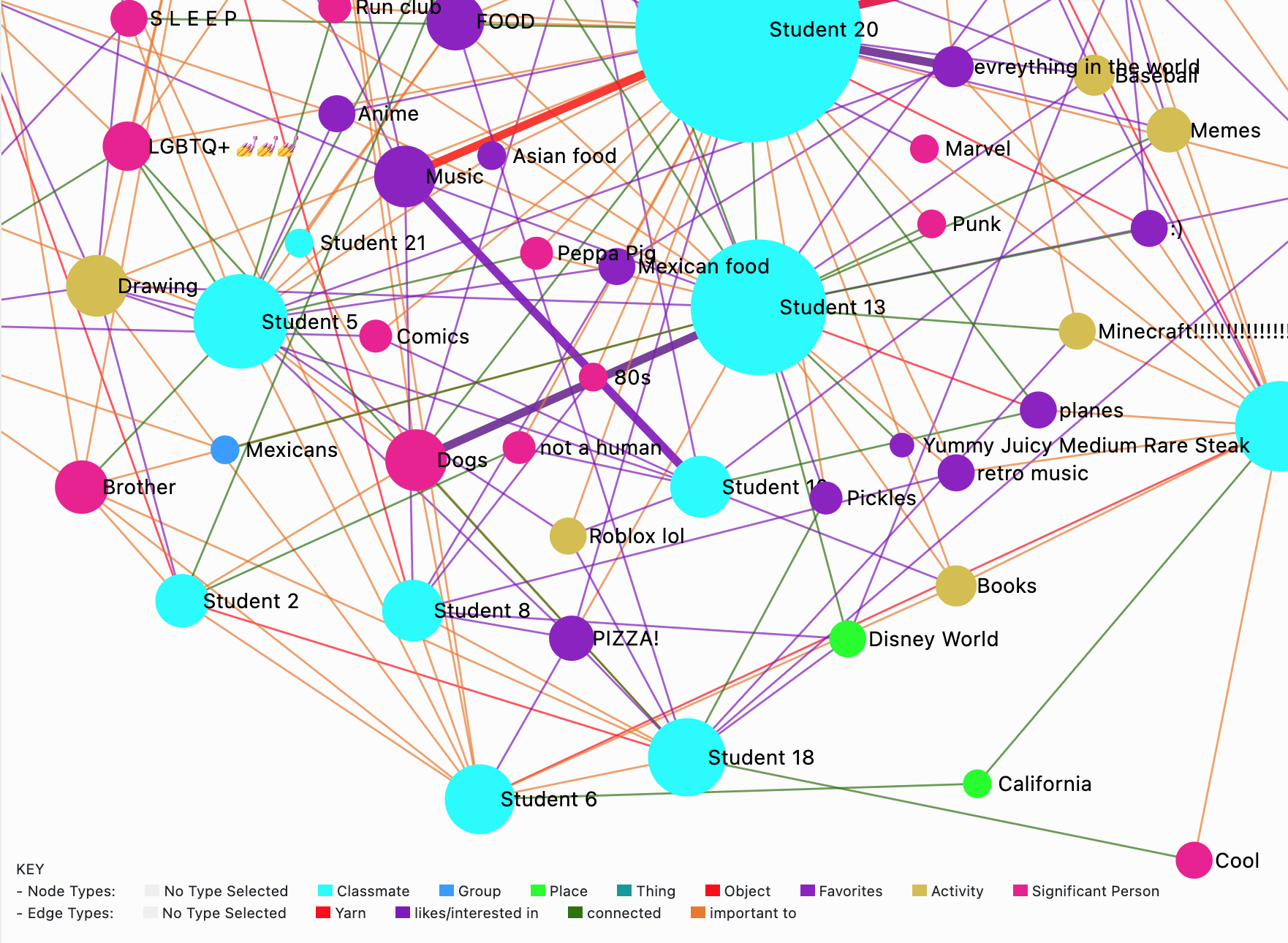 Image ImageNetwork |
| Chicken Industry Network | In our discussions with the teachers, we knew that they were beginning a large project to explore how farms operate in the local and neighboring communities. To help connect to this, learners explored a network depicting key elements of the chicken industry. Based on the network, they voted for the node that they felt was the most important to the industry and discussed their reasoning. Adult Chicken, Chicken Feed, and Chicks were the most popular with 4 votes each. Some students begane to recognize centrality as a key measure of importance while others continued to focus on their prior assumptions about chickens and farming (e.g., eggs are important). | 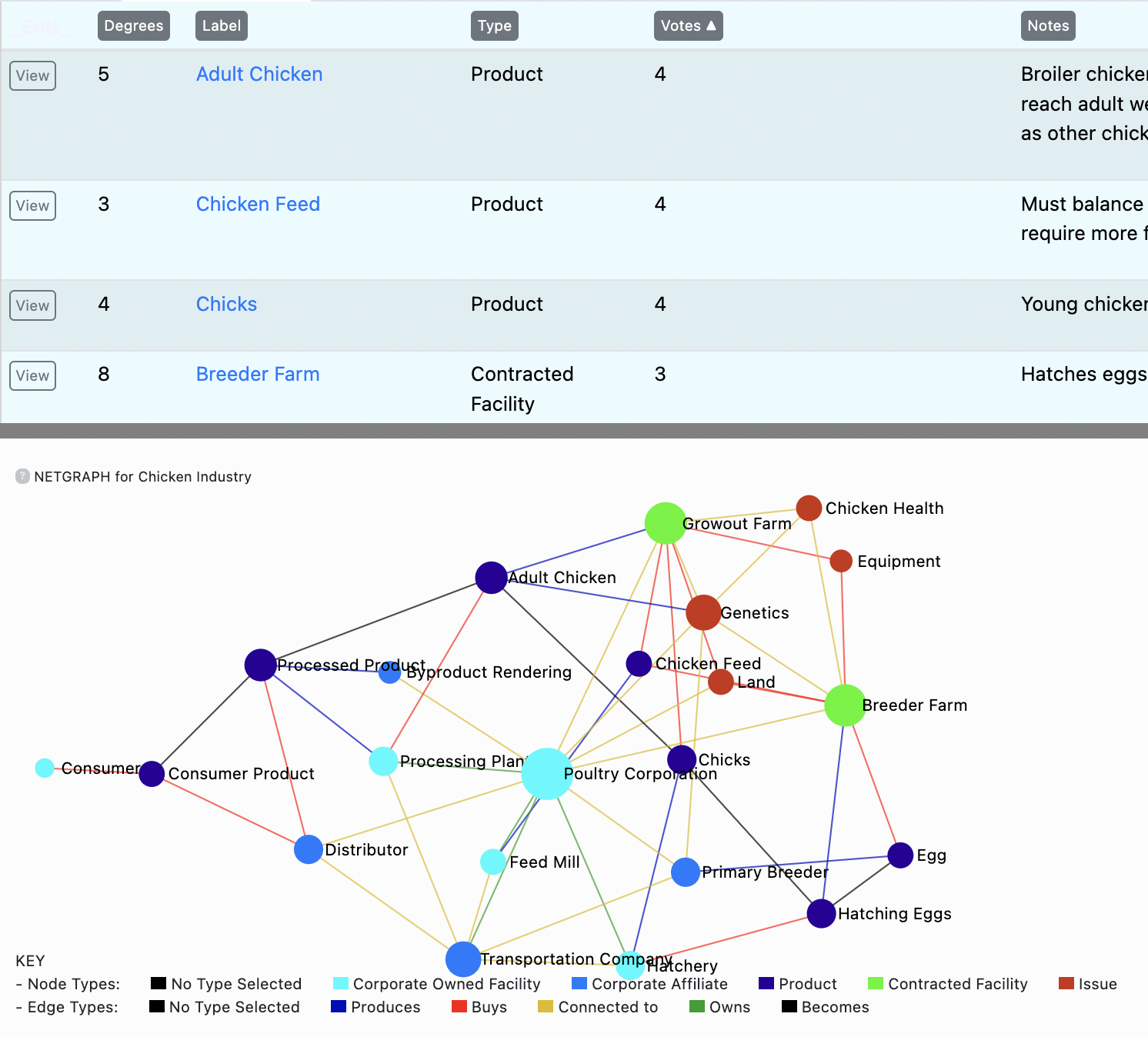 Image ImageNetwork |
| Social Network Game | Students used the researcher-created Social Network to play a game in which they embodied either a marketing company or fictional people in a social network. The marketing team had to use the network, consisting of people and information they share on their social media profiles, to decide which person to show an advertisement to so that it would get the most views/shares. The marketers were often surprised by dislikes people had that were not publicly available that led them to ignore the ad! This network served as the basis of rich conversation about how our social media behavior may make our habits and interests known to the corporations that run those networks. | 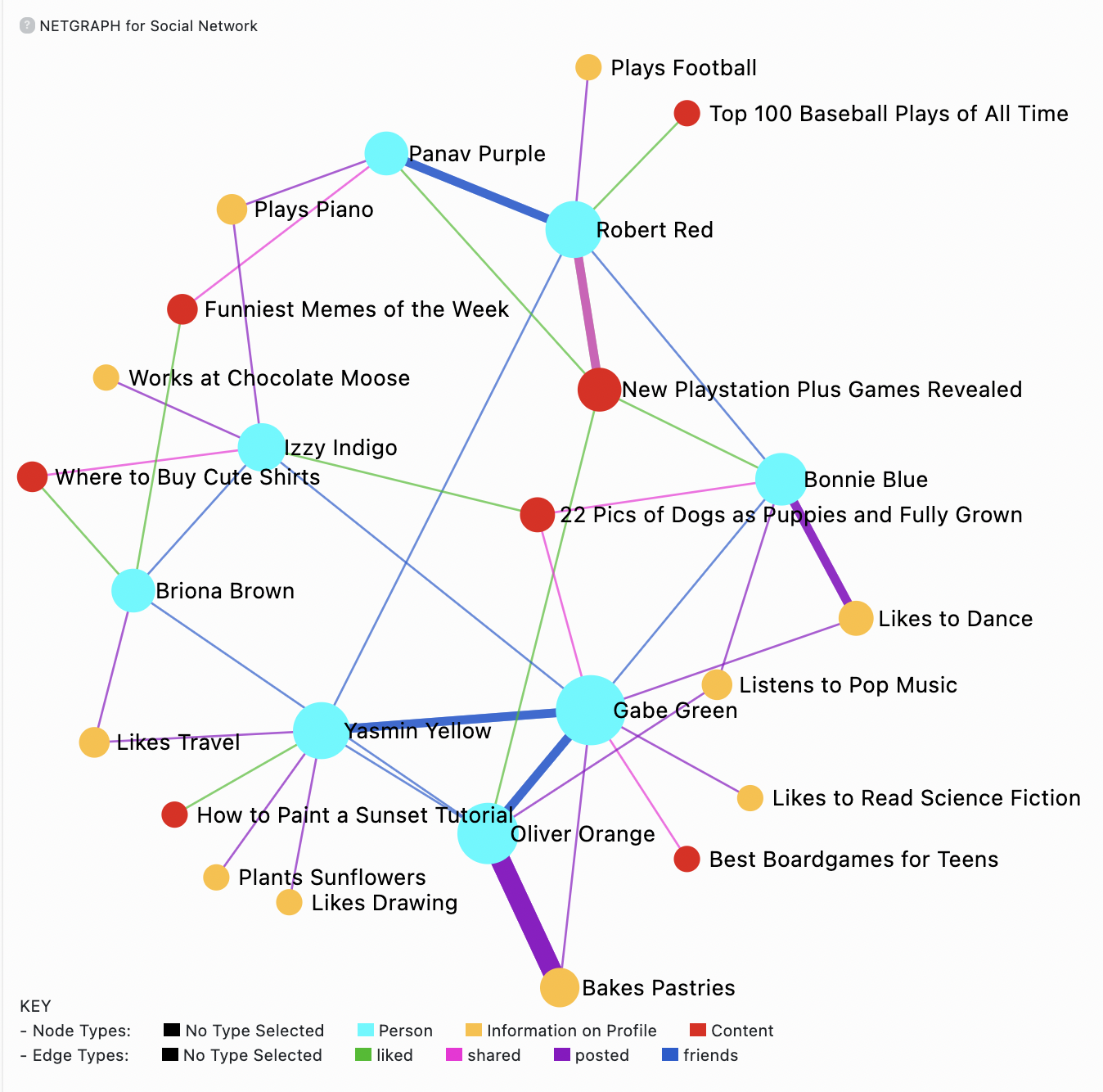 Image ImageNetwork |
Other examples of our use of Net.Create
Here is a sample network depicting the readings in our graduate level Cultural Historical Activity Theory (CHAT) course here.
For more about the tool, and our earlier work in history classrooms, check out https://netcreate.org/.